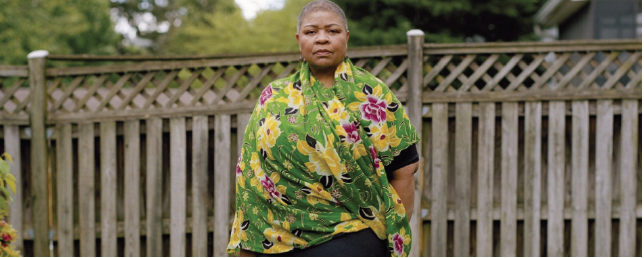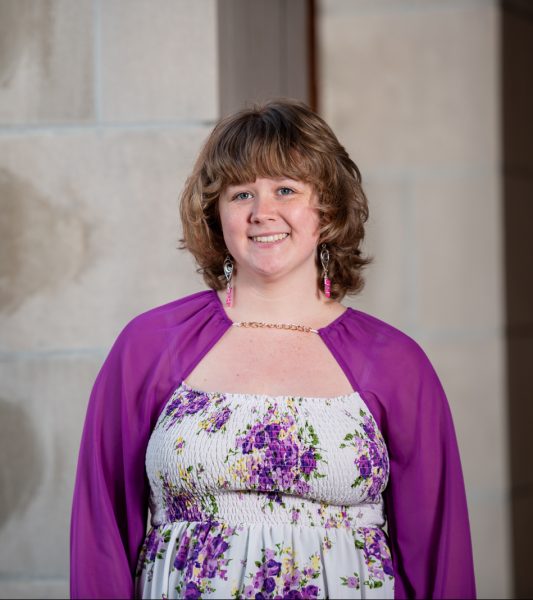Anneliese Bruner delivers keynote address
Author of “The Nation Must Awake'” speaks on the effects of the Tulsa Race Massacre
Courtesy of Ideastream Public Media
Bruner’s book “The Nation Must Awake” is a retelling of her great-grandmother’s account of the Tulsa Massacre.
February 24, 2022
“We have to seize the stories that are all around us, within our families and communities,” Anneliese Bruner, Wake Forest’s 2022 Black History Month keynote speaker said, introducing the topic of her Feb. 16 lecture.
Bruner is the great-granddaughter of a Tulsa Massacre survivor, Mary E. Jones Parrish, and wrote an account of this massacre entitled “Events of the Tulsa Disaster”. In 2021, Bruner republished this account along with a collection of additional testimonies and reflections, under the title “The Nation Must Awake”.
This story was the primary focus of her address. Bruner spoke on her personal connection to the events in Tulsa and how this event remains relevant today.
In her address, Bruner read excerpts from Parrish’s account, and she told the story of the Tulsa Massacre through her own eyes, as well as the eyes of her family.
“Individual family history inspires me to preserve the truth of Tulsa as my way to pay forward what my great-grandmother left for my family,” Bruner said.
In addition to reflecting upon this historic tragedy, Bruner also addressed how these events correspond to contemporary issues regarding democracy and racial tension. She spoke on history erasure and the lack of education on how Black identities are connected to American history.
“It’s part of the fullness of American history, and we should all embrace it,” Bruner said.
Event organizer and president of Black Student Alliance Jacob Thomas hoped the event would do exactly what Bruner set out to do — bring attention to the significance of Tulsa and present a holistic view of American history that includes the Black experience.
“I wanted to make sure that there is an acknowledgment of the historical relevance of [Tulsa],” Thomas said.
He continued: “It goes beyond just representing Black culture. It’s making sure that my full-bodied presentation of Black experience comes with the exploration of challenges with privilege and power.”
Bruner also commented on the rise of racial tension in the U.S., drawing upon the Jan. 6 insurrection in a reflection upon how political upheaval is obstructing democracy.
“That experience of Tulsa is a warning to us now to recognize the gravity of letting the nation’s political temperature reach a boiling point,” Bruner said.
She continued: “We are faced with the issues of short term comfort, denialism and normalcy bias. We must face squarely the dangers confronting us as a society and commit to prioritizing a renewed democracy and rebuilding together.”
After her address, a Q&A style panel was conducted with Bruner and two moderators, senior Bea Pearson and Dr. Donovan Livingston, Assistant Dean, Office of University Collaborations and Office of the Provost. One of the questions posed by Bruner was “what are the most critical changes that need to occur within the education system in order to promote a more truthful and historically accurate society?”
Pearson replied: “I think it requires a change in mindset. The modern, binary description of our society is black and white, but we all belong to many, many groups. First and foremost, our commonality is that we are all Americans. I would hope and pray that people will take this as American history.”
In his reflection on the event, Thomas said that he was glad to see Black history “elevated to a position where people may deem it important enough to be taught in schools”.
“It is important, and it is something that should be acknowledged,” Thomas said.
While Black History Month is coming to an end, students can still celebrate by attending upcoming events held by the Black Student Alliance and the Intercultural Center. One event coming up is a Black Professionals Forum on Feb. 26. which will allow Black students to connect with alumni through the sharing of experiences and professional knowledge.
























Anneliese • Feb 27, 2022 at 5:10 am
Thanks for reporting on this event. I am pleased to have been asked to bring my family’s Tulsa story to Wake Forest University.